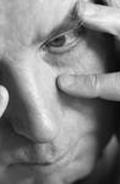|
|
Impotence and sexual disorders

Sexual dysfunction or sexual malfunction is difficulty during any stage of the sexual act (which includes desire, arousal, orgasm, and resolution) that prevents the individual or couple from enjoying sexual activity. Sexual difficulties can begin early in a person's sex life or they may develop after an individual has previously experienced enjoyable and satisfying sex. A problem may develop gradually over time, or may occur suddenly as a total or partial inability to participate in one or more stages of the sexual act. The causes of sexual difficulties can be physical, psychological, or both. Emotional factors affecting sex include both interpersonal problems (such as marital/relationship problems, or lack of trust and open communication between partners) and psychological problems within the individual (depression, sexual fears or guilt, past sexual trauma, and so on). There may be medical causes to these disorders, such as decreased blood flow or lack of vaginal lubrication. Chronic disease can also contribute, as well as the nature of the relationship between the partners. As the success of sildenafil (Viagra) attests, most erectile disorders in men are primarily physical, not psychological conditions. It is unclear exactly what causes vaginismus, but it is thought that past sexual trauma (such as rape or abuse) may play a role. Another female sexual pain disorder is called vulvodynia or vulvar vestibulitis. In this condition, women experience burning pain during sex which seems to be related to problems with the skin in the vulvar and vaginal areas. The cause is unknown. An erection occurs when the nervous system activates a rapid increase in blood flow. The vascular muscle in the spongy area becomes engorged with blood and the outflow of blood is cut off. An erection can occur as a reflex as we see in spinal cord patients, or can be caused by psychogenic (originating in the mind) stimulation. Numerous sexual stimuli are processed by the brain and transmitted to the penis via the nervous system. Erections can change over time, sometimes stronger or weaker than other times. When men are in their teens they often have little control over their erections and obtain erections when not in a sexual situation. For most men this stops in their late teens to early twenties. As men get older, erections may not always be obtained when they want one. Almost every man has the occasional time when their erection is less strong than they would like but sometimes it becomes a problem. In order to increase the size of an erection, there must be an increase in blood flow and, at the same time, the blood has to be prevented from leaving the penis. A man with erectile dysfunction has either a problem getting an erection or difficulty maintaining one. This usually interferes with sexual activity by preventing penetration during intercourse. There are many effective treatments for erectile dysfunction. The most popular option is a class of drugs called phosphodiesterase type 5 (PDE5) inhibitors, which includes sildenafil (Viagra), vardenafil (Levitra) and tadalafil (Cialis). These drugs, taken in pill form from zero to 60 minutes before sexual activity, work in approximately 70 percent of men, though they are less effective in men with neurological causes of erectile dysfunction such as nerve damage from prostate surgery, diabetes or spinal cord injury. Sildenafil (Viagra), vardenafil (Levitra) and tadalafil (Cialis) drugs can cause minor side effects such as flushing and headache, but they have been shown to be safe in most men, including those with heart disease. However, these drugs can interact with other medications and cause dangerously low blood pressure. In particular, they should never be taken with nitroglycerin or other nitrate medications commonly used to treat heart disease. Men with enlarged prostates who take alpha-blocker drugs such tamsulosin (Flomax) or doxazosin (Cardura) should probably avoid PDE5 drugs. If Sildenafil (Viagra), vardenafil (Levitra) and tadalafil (Cialis) drugs don't work or cannot be used because of potential side effects, your doctor can recommend other therapies. The drug alprostadil (Caverject, Edex, Muse) causes blood vessels to widen. This can allow blood to flow more freely in the penis, leading to an erection. The drug can be injected with a tiny needle, or a small pellet (suppository) can be inserted into the opening of the penis. Suppositories like this are effective in approximately two-thirds of men. Injections are effective about 80 percent of the time. Men who do not benefit from medical or psychological treatment often have success with mechanical or prosthetic devices. External products, known as vacuum erection devices, are safe and highly effective, but many men and their partners find them unappealing. Another option is a surgically placed penile implant. However, because implants require surgery (with the risk of surgical complications), only 10 percent of men with erectile dysfunction choose this option. Vascular (blood vessel) surgery sometimes is recommended for young, healthy men who develop impotence after trauma to the groin.
Terms and definitions on this pageImpotence Antihypertensives Find yourself a new love
|
|
